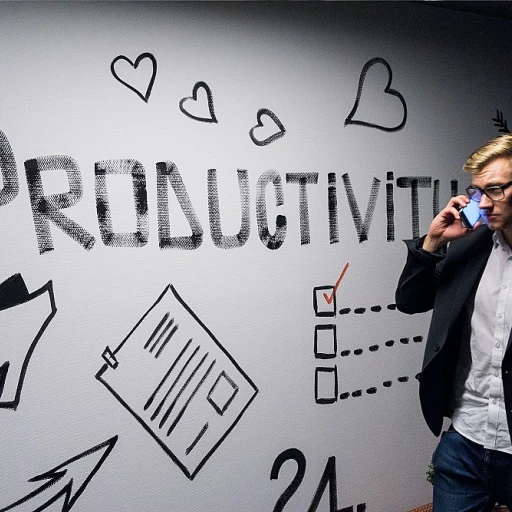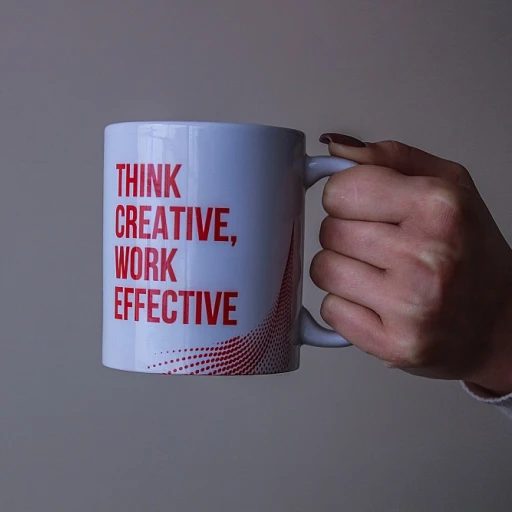
What Are Korn Ferry Competencies?
Exploring the Fundamentals of Korn Ferry Competencies
In the realm of hiring and employee assessments, Korn Ferry competencies are instrumental in ensuring effective talent acquisition and management. At its core, the Korn Ferry Competency Framework acts as a blueprint for identifying and nurturing potential leaders within an organization. This model focuses on a broad array of competencies, each tailored to cultivate leadership potential and optimize organizational development. What sets Korn Ferry apart is its comprehensive approach that merges competency assessment with leadership development. The framework is not just about identifying skills but also about understanding how these competencies can drive business success. By harnessing these insights, organizations can shape their talent strategies to align with best practices in leadership assessment and performance. The framework encompasses key competencies including decision quality, where leaders are tasked with making informed choices that drive business results. It also addresses ensures accountability, ensuring that leaders maintain responsibility and inspire trust within their teams. Using the leadership architect, organizations can tailor their learning and development programs to target these competency frameworks. This allows them to provide targeted training and feedback to cultivate their workforce effectively. For those in charge of implementing such models, it’s essential to understand how these competencies feed into larger organizational goals. As businesses evolve, anchoring their talent strategy to a robust model like Korn Ferry’s ensures consistency across different levels of leadership. To delve deeper into how the competency framework enhances employee evaluations and development, visit our blog for insights on effective review templates. This resource provides additional guidance on leveraging these competencies for better hiring outcomes.The Importance of Competency-Based Hiring
Why Competency-Based Hiring Matters
In today's competitive business landscape, organizations are increasingly recognizing the value of competency-based hiring. This approach focuses on identifying and assessing the specific skills and behaviors that are critical for success in a given role. By leveraging the Korn Ferry competency framework, companies can ensure that they are selecting candidates who not only meet the technical requirements but also align with the organization's values and culture.
Competency-based hiring offers several advantages:
- Improved Leadership Potential: By focusing on leadership competencies, organizations can identify candidates with the potential to grow into leadership roles. This ensures a pipeline of future leaders who are well-equipped to drive the company forward.
- Enhanced Organizational Performance: Hiring based on competencies helps in aligning individual performance with organizational goals. This alignment is crucial for achieving long-term business success.
- Better Decision Quality: Competency assessments provide a structured way to evaluate candidates, leading to more informed hiring decisions. This reduces the risk of hiring based on gut feelings or biases.
- Consistent Feedback and Development: With a clear understanding of the required competencies, organizations can provide targeted feedback and development opportunities. This supports continuous learning and growth for employees.
Integrating competencies into the hiring process also facilitates a more objective and fair assessment of candidates. This approach helps in identifying the best fit for the role, reducing turnover, and enhancing employee satisfaction. For more insights on enhancing hiring success with effective employee assessment tools, you can explore this resource.
Key Competencies in the Korn Ferry Model
Identifying Core Elements for Performance Enhancement
Understanding the key competencies within the Korn Ferry model offers a lens into enhancing organizational performance and effectively guiding talent development. This framework places leadership at its core, highlighting the crucial competencies that leaders must embody and cultivate. In leveraging Korn Ferry's insights, organizations can tailor their competency-based learning to develop potential across all levels. Whether focusing on leadership skills or architecting organizational growth, pinpointing competencies that drive success is paramount.- Leadership Architect: By understanding the essential leadership competencies, companies can build a robust leadership architect, ensuring accountability within teams and improving decision quality. This enables leaders to effectively manage and engage direct reports, further developing their teams.
- Competency Framework Alignment: Integrating Korn Ferry's comprehensive competency framework into existing structures aids businesses in aligning their strategic goals with individual performance metrics. This not only supports the growth of leadership potential but also aligns with global competency standards.
- Focused Talent Development: With a focus on learning and development, organizations can use competency assessments to identify gaps and provide targeted feedback for improvement. This process can involve customized training programs and courses designed to enhance leadership performance and ensure continuous development.
Integrating Korn Ferry Competencies into Your Hiring Process
Integrating Korn Ferry Competencies Effectively
Integrating Korn Ferry competencies into your hiring process requires a thoughtful approach, ensuring the framework aligns with your organizational goals and culture. Here’s a step-by-step guide to assist you in embedding these competencies into your recruitment strategies:- Assessment Customization: Begin by tailoring the competency framework to reflect the unique needs of your organization. The Korn Ferry Leadership Architect framework provides a global competency base, yet it is crucial to adjust it to the specific requirements of your company's leadership roles and organizational level. Ensure the necessary competencies, such as leadership potential, decision quality, and ensures accountability, are measured accurately.
- Training and Development for Recruiters: Provide recruiters with comprehensive training on the competency-based approach. This can include courses on understanding and evaluating leadership competencies and learning how to conduct effective competency assessments. This preparation is vital for delivering precise and meaningful feedback to potential hires and ensuring an accurate assessment of their fit within your company.
- Structured Competency Assessments: Implement structured assessments that evaluate a candidate’s skills and potential through the Korn Ferry framework. Utilizing renowned tools and assessments enables organizations to predict leadership performance accurately and recognize talent that can contribute to long-term success. Ensure you're using best practices to maintain consistency and reliability across different candidates and roles.
- Leadership Development Pathways: Once selected, integrate new hires into a leadership development program that aligns with the competencies required for their role. This approach not only aids in maximizing their potential but also reinforces an organizational commitment to continuous improvement and growth.
- Feedback and Continuous Learning: Establishing a culture of continuous feedback is essential. Through consistent developmental feedback, employees can better understand their areas of improvement, paving the way for future growth and increased business impact within the competency framework.
Challenges and Considerations
Addressing Complex Challenges in Competency-Based Hiring
Implementing Korn Ferry's competency framework into your hiring process is undoubtedly effective; however, it also comes with its set of challenges and considerations. Successfully navigating these challenges can significantly enhance your organization’s ability to identify and nurture potential leaders while ensuring accountability and improving decision quality. Firstly, one of the primary challenges is aligning the competency framework with the specific needs of your organizational level. Businesses are dynamic entities, and each organization has unique competencies that are pivotal to its success. Therefore, it is crucial to tailor the Korn Ferry competencies specifically to your organization's context so that the chosen leadership competencies truly reflect your strategic goals. Another consideration is the need for comprehensive training and development for those involved in the hiring process. It's essential for HR teams and hiring managers to be well-versed in using the leadership architect models and leadership assessment tools. This involves not only understanding how to assess leadership competency and performance effectively but also learning how to provide constructive feedback that fosters candidate development. Frequently enrolling in competency-based learning courses or workshops can be invaluable. Moreover, integrating leadership competencies requires a commitment to real-time feedback loops and continuous learning. An architect of a global competency framework would emphasize the importance of systematically collecting feedback on competency assessments from both candidates and interviewers. This can highlight potential gaps in the process and provide insights into best practices that can be adapted across the organization. There are also technical challenges to consider, such as ensuring that digital platforms used for leadership assessments can adequately support the extensive range of competencies detailed in the Korn Ferry model. Whether employing a standardized assessment tool or a customized solution, ensuring they work seamlessly with your existing systems is crucial. Finally, it is important to recognize that adopting a competency-based approach is a continual journey rather than a one-time initiative. As leaders within the organization evolve, your competency framework must also adapt to reflect new roles and responsibilities, ensuring that the development of leadership potential aligns with broader organizational goals. By addressing these challenges with strategic foresight and a commitment to continuous improvement, organizations can effectively harness the strength of the competency framework to build a robust talent pipeline and enhance overall leadership performance.Measuring Success with Competency-Based Hiring
Evaluating Competency-Based Hiring Efficiency
Successfully embedding Korn Ferry competencies into your hiring process is just the beginning. An essential follow-up is consistently measuring success through various assessment strategies that reflect the effectiveness of your talent acquisition strategy. This approach enables organizations to understand better how well their systems align with their strategic goals.
Consider these elements when evaluating competency-based hiring:
- Leadership Performance: Track leadership success by observing how candidates, once onboard, demonstrate leadership competencies such as decision quality, ensuring accountability, and managing direct reports efficiently. It's critical to assess whether they are meeting the expectations set forth by the competency framework.
- Feedback Mechanisms: Implement channels for stakeholders to provide feedback. This can include direct reports and peers who can offer insights into how new hires are performing at an organizational level. Adjusting the framework based on this feedback ensures a dynamic approach to leadership development.
- Ongoing Learning & Development: Evaluate how well leadership developmental programs are nurturing employees' potential. Are the programs in place helping employees grow within their roles, or is there room for improvement? This evaluation can range from formal courses to leadership assessments, ensuring all facets cater to your objectives.
- Organizational Fit & Development: Examine how new hires integrate with the culture and contribute to business objectives. Internally assess if the hiring process aligns with organizational goals and if there's a need for training clinics on specific leadership competencies to address skill gaps.
Additionally, incorporating best practices from the leadership architect's perspective can significantly improve outcomes. These ensure the architect global competency model is uniformly applied across all levels, preventing any disconnect in expectations and performance.













